‘Harry Potter’ Star Ralph Fiennes Decries Constant Attacks Against J.K. Rowling: “She’s Just A Woman Who Wants To Be Able To Say ‘I’m A Woman'”

In the opinion of storied actor Ralph Fiennes, the continual attacks and accusations of bigotry against Harry Potter scribe J.K. Rowling over her concerns for biological women’s rights in the face of a burgeoning political tendency to defer to transgender activists on issues of gender are nothing short of “appalling”.
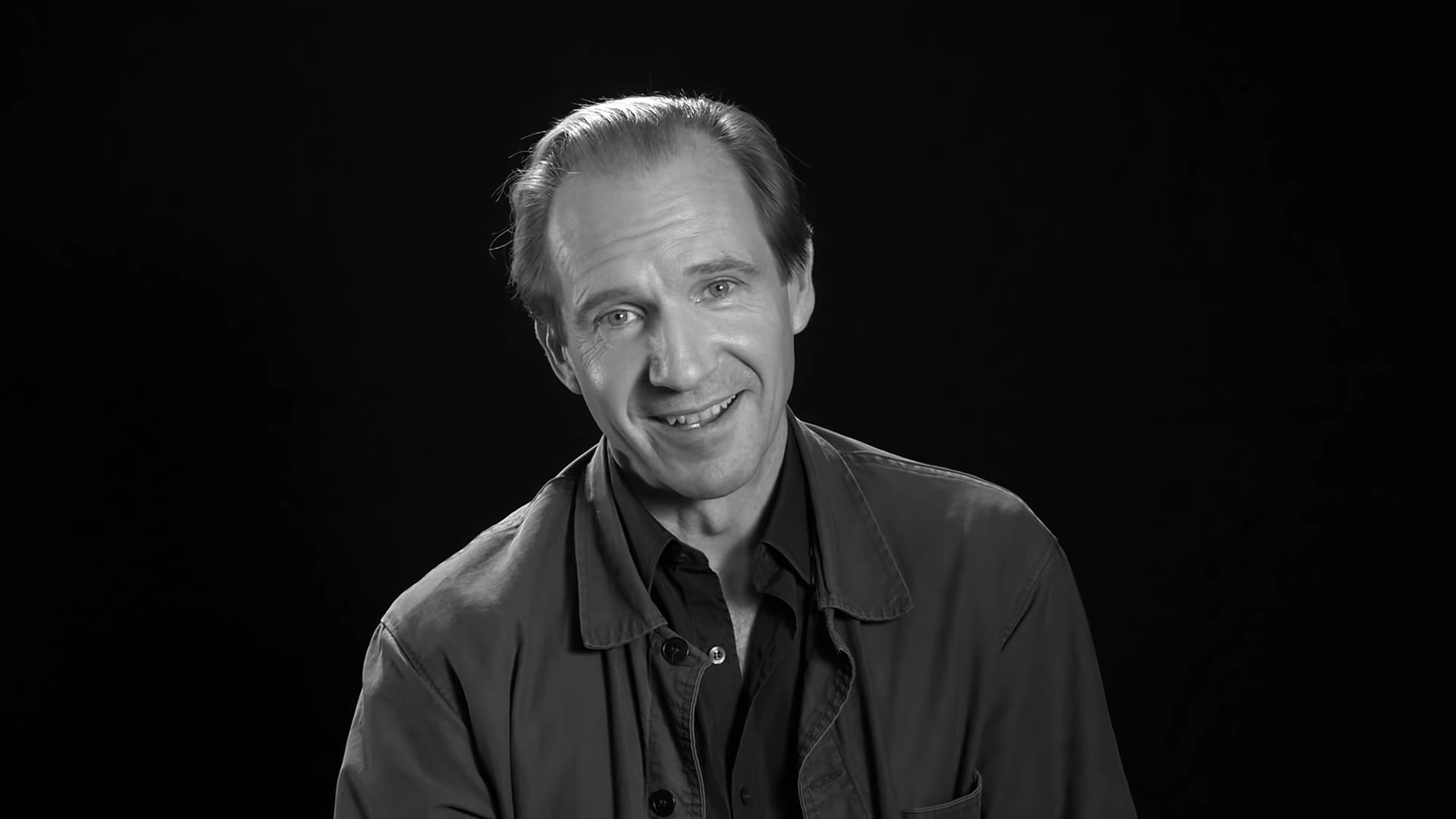
Fiennes, whose association with the author stems from his portrayal of Lord Voldemort in the eight-film cinematic adaptation of her seminal fantasy series, spoke to his thoughts on her ongoing ostracization during a recent interview with The New York Times.
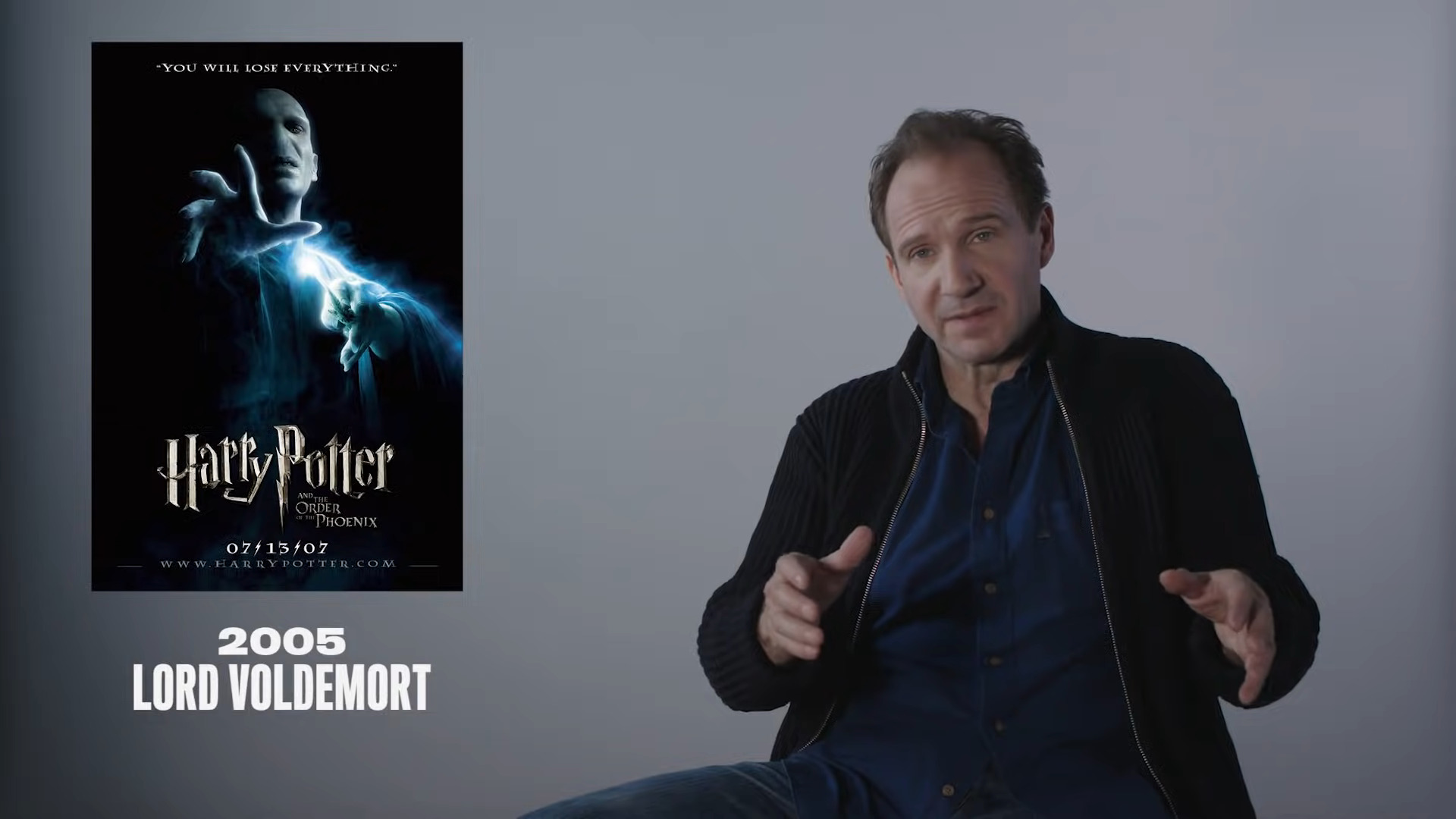
Speaking with writer Maureen Dowd, the actor first broached the topic of Rowling by recalling how when he was first approached for the role, ‘I was a bit sniffy, I think, initially.'”
“I thought, ‘Oh, this is a children’s fantasy thing. I’m not sure,’” said Fiennes, before noting that his ‘proudest moment’ was when a Harry Potter film crew member’s child cried after seeing him in his full, made-up appearance as He-Who-Must-Not-Be-Named and believing him to be the actual Dark Lord.
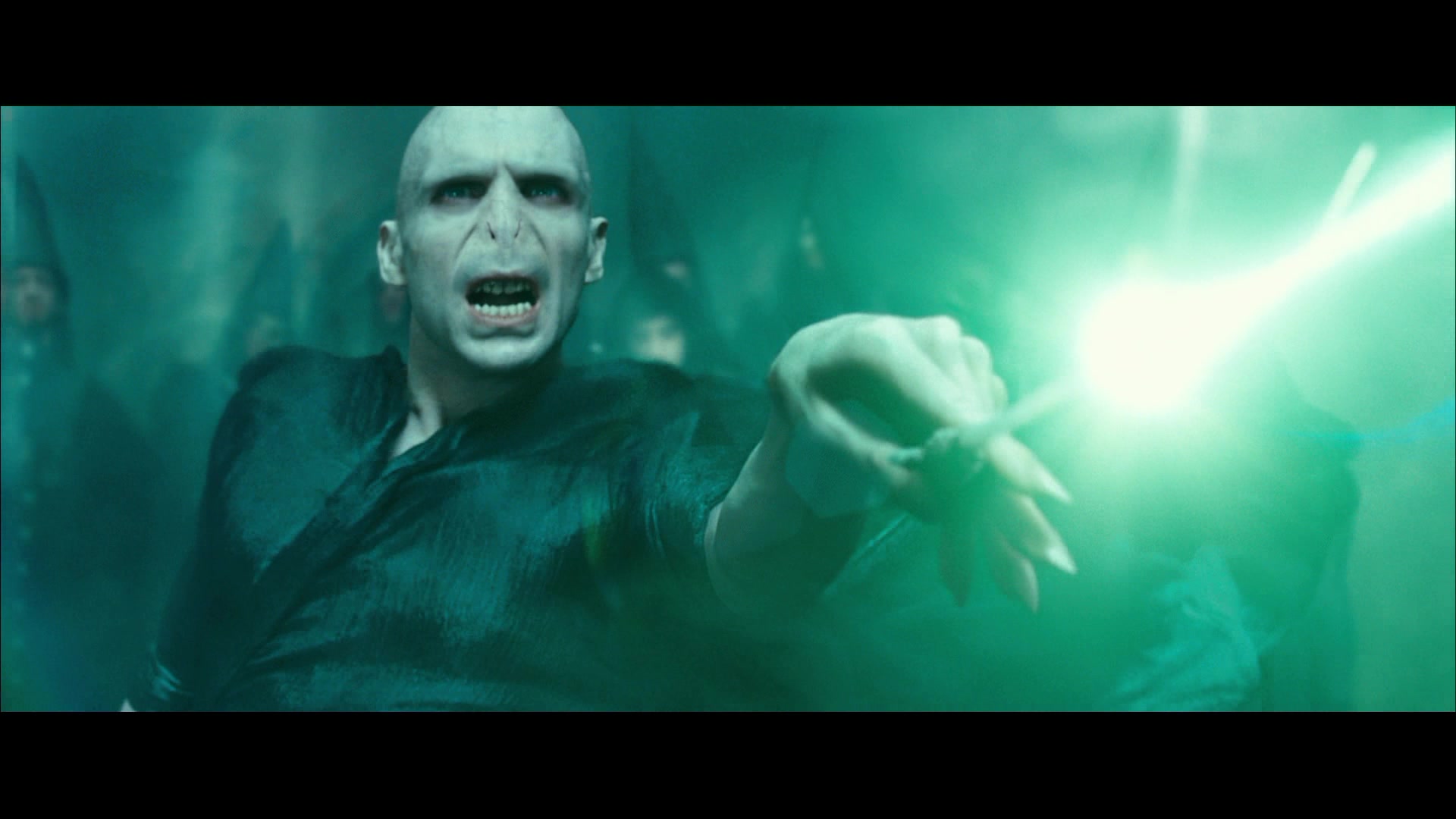
With Rowling’s name now on the table, Fiennes turned to address the ongoing cycle of controversy and condemnation that has surrounded the author in recent years.
“J.K. Rowling has written these great books about empowerment, about young children finding themselves as human beings,” opined the actor, pushing back against the idea that the author was nothing more than a hateful bigot. “It’s about how you become a better, stronger, more morally centered human being.”
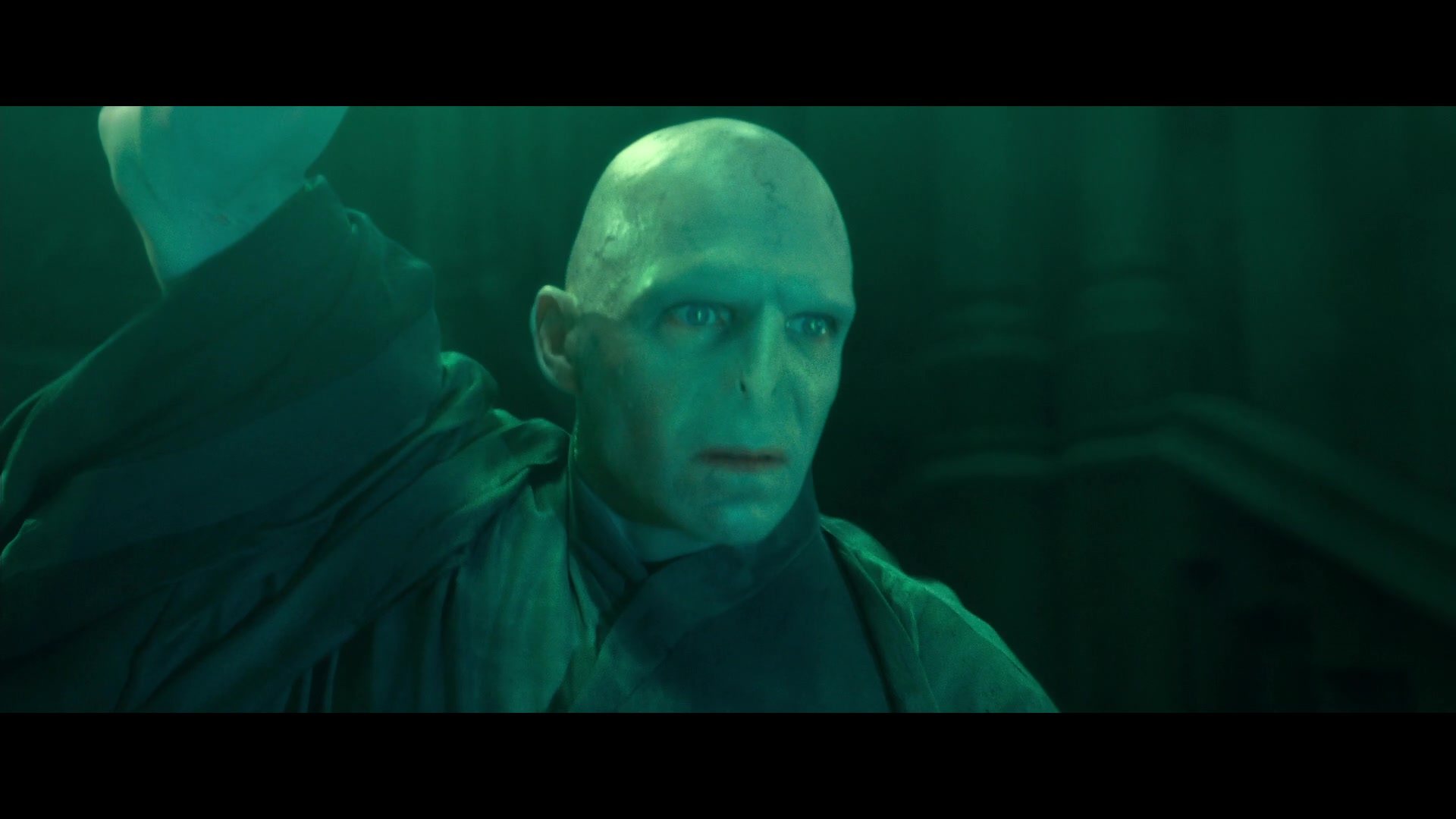
“The verbal abuse directed at her is disgusting, it’s appalling,” he continued. “I mean, I can understand a viewpoint that might be angry at what she says about women. But it’s not some obscene, über-right-wing fascist. It’s just a woman saying, ‘I’m a woman and I feel I’m a woman and I want to be able to say that I’m a woman.’
“And I understand where she’s coming from,” he ultimately asserted. “Even though I’m not a woman.”
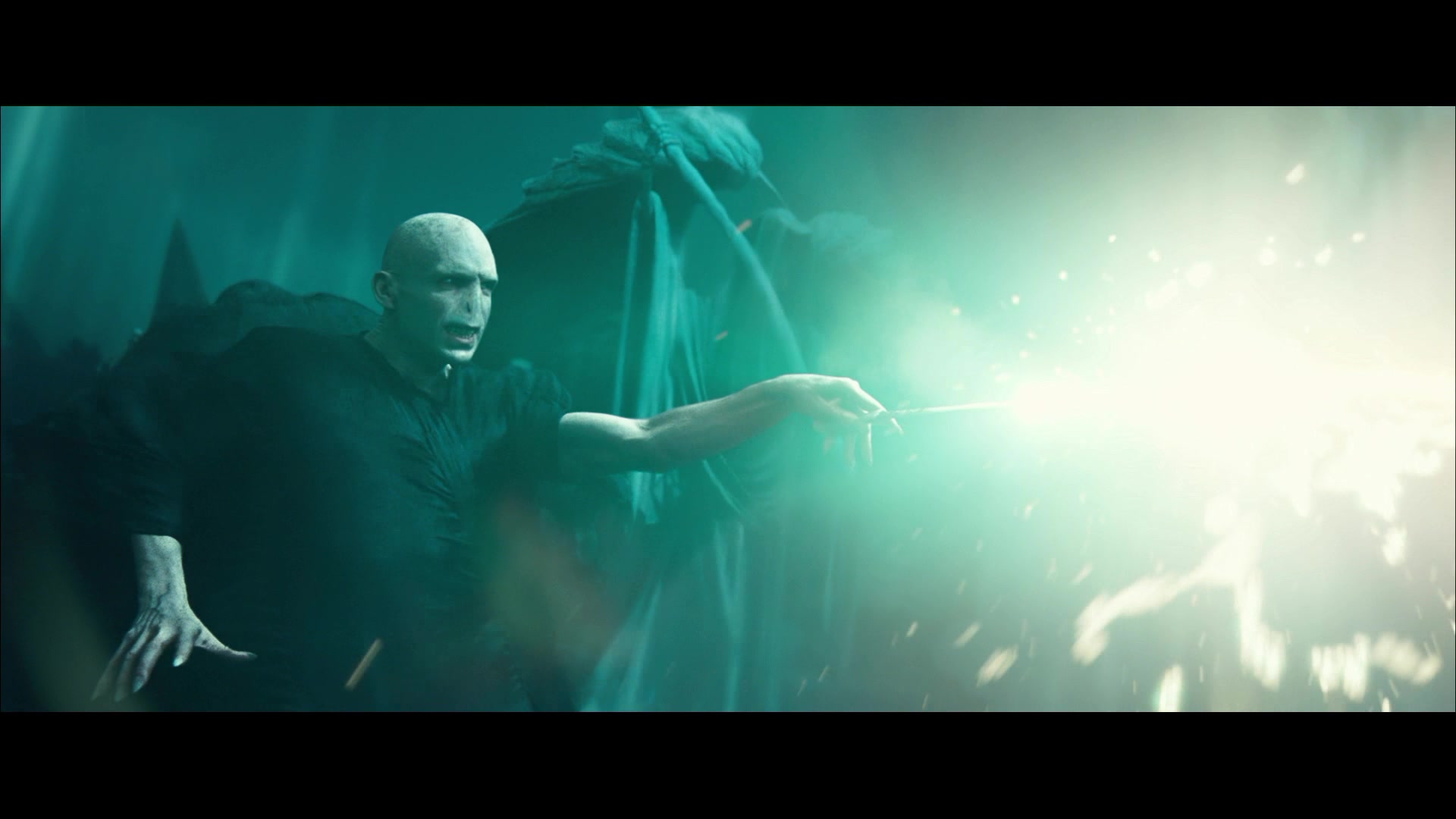
Fiennes previously stood up in defense of Rowling during a March 2021 interview with The Telegraph.
“I can’t understand the vitriol directed at her,” he opined. “I can understand the heat of an argument, but I find this age of accusation and the need to condemn irrational.”
“I find the level of hatred that people express about views that differ from theirs, and the violence of language towards others, disturbing,” he ultimately declared.
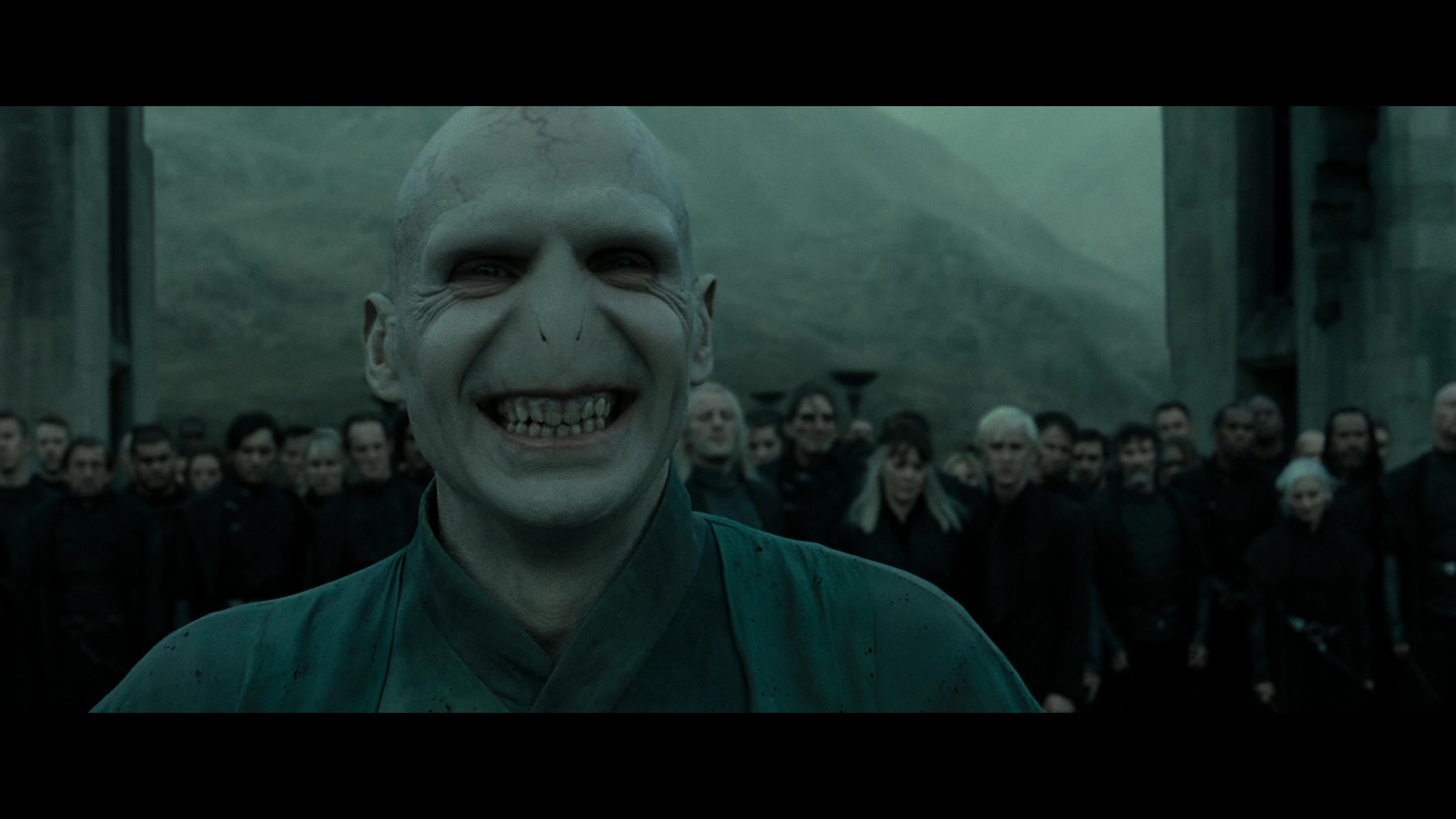
Notably, Fiennes is not the first Harry Potter film alumni to view the backlash to Rowling as unwarranted.
Asked by The Independent earlier this month for his thoughts on her recent questioning of transgender politics, Draco Malfoy actor Tom Felton protested, “First of all, I don’t know enough about the specifics of what anyone said.”
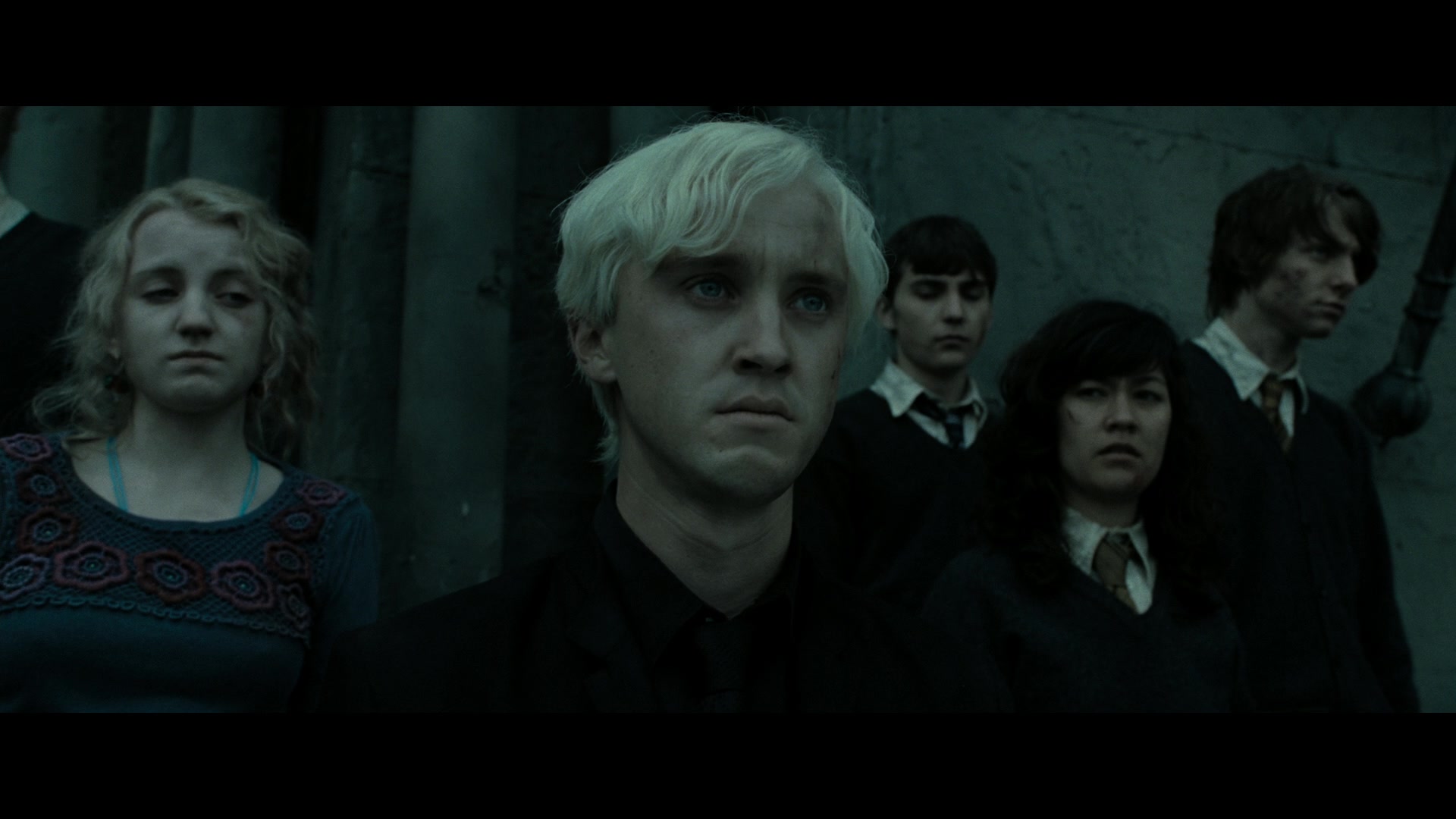
“My dog takes up far too much time for me to go into such matters,” said The Flash CW actor. “I mean, the obvious things to say are that I’m pro-choice, pro-discussion, pro-human rights across the board, and pro-love. And anything that is not those things, I don’t really have much time for.”
Similarly praising how the author’s works transcend ages and backgrounds, Felton admitted, ““Honestly, with my friends, we all have differing opinions on various matters, and we celebrate our own choices. We certainly don’t take any pleasure in putting crosshairs on people that may have said things that we disagree with.”
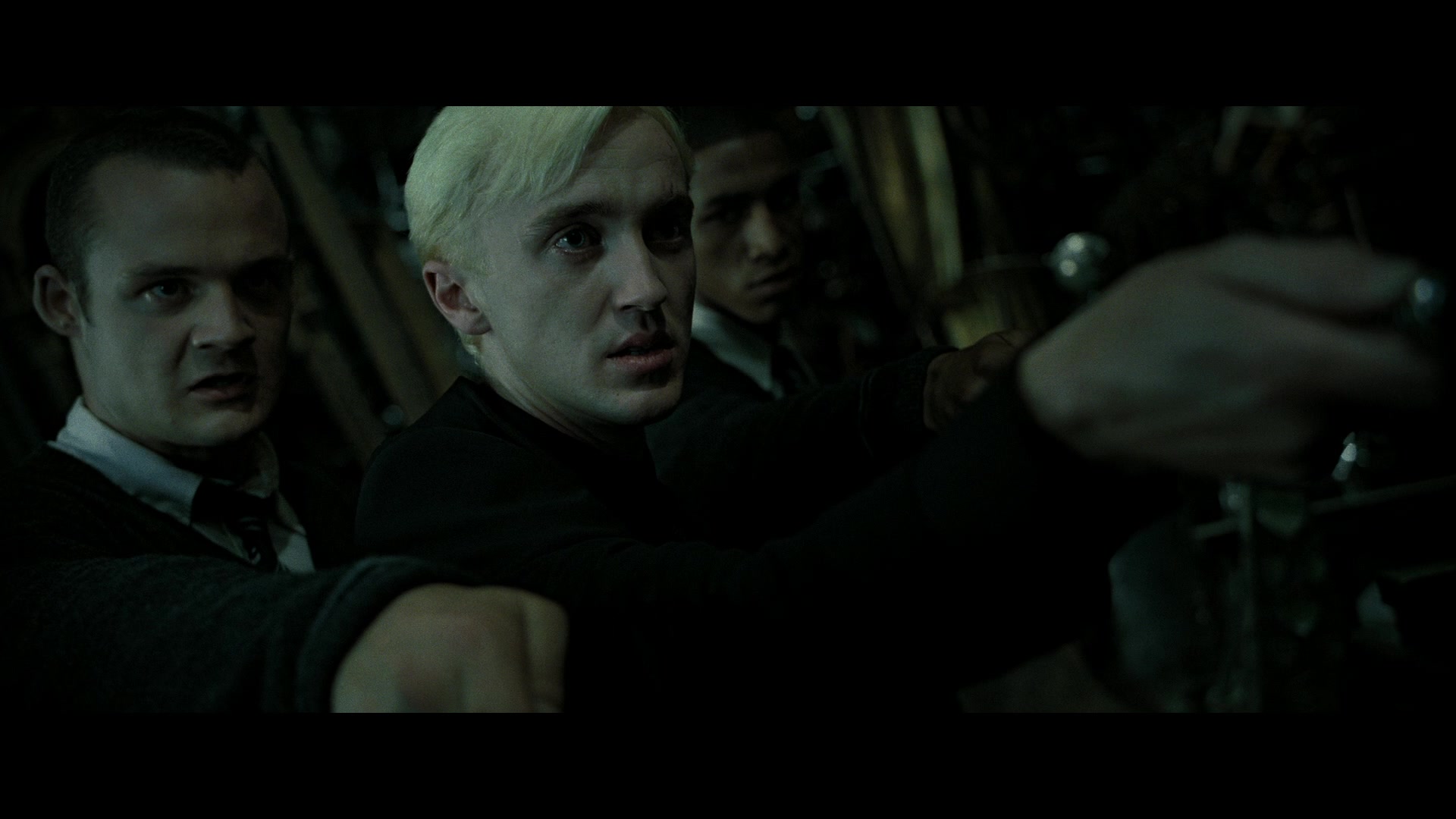
Though Rowling has been accused of being anti-transgender, the author clarified in December 2021 that she “never said there are only two genders,” but rather questioned the importance given to making transgender individuals feel accepted in a given space over the safety of biological women.
Alluding to the results obtained by a Rasmussen Reports’ poll published that month which found that when asked if they “agree or disagree with [Rowling’s belief that] there are two genders, male and female […] 75% of American adults agreed with the statement, with 64% strongly agreeing and 18% disagreeing,” Rowling took to Twitter on December 29th to point out, “I’ve never said there are only two genders.”
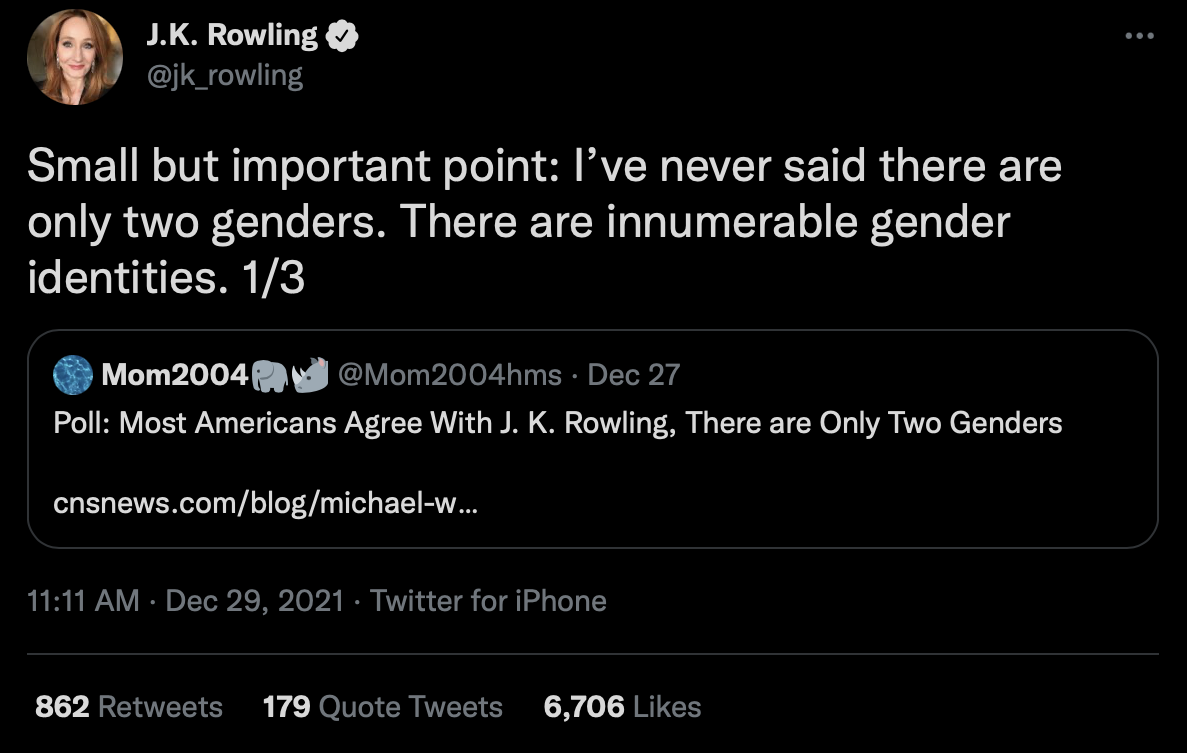
Rather, she explained, that she believed “there are innumerable gender identities,” and that the actual “question at the heart of this debate is whether sex or gender identity should form the basis of decisions on safeguarding, provision of services, sporting categories and other areas where women and girls currently have legal rights and protections.”
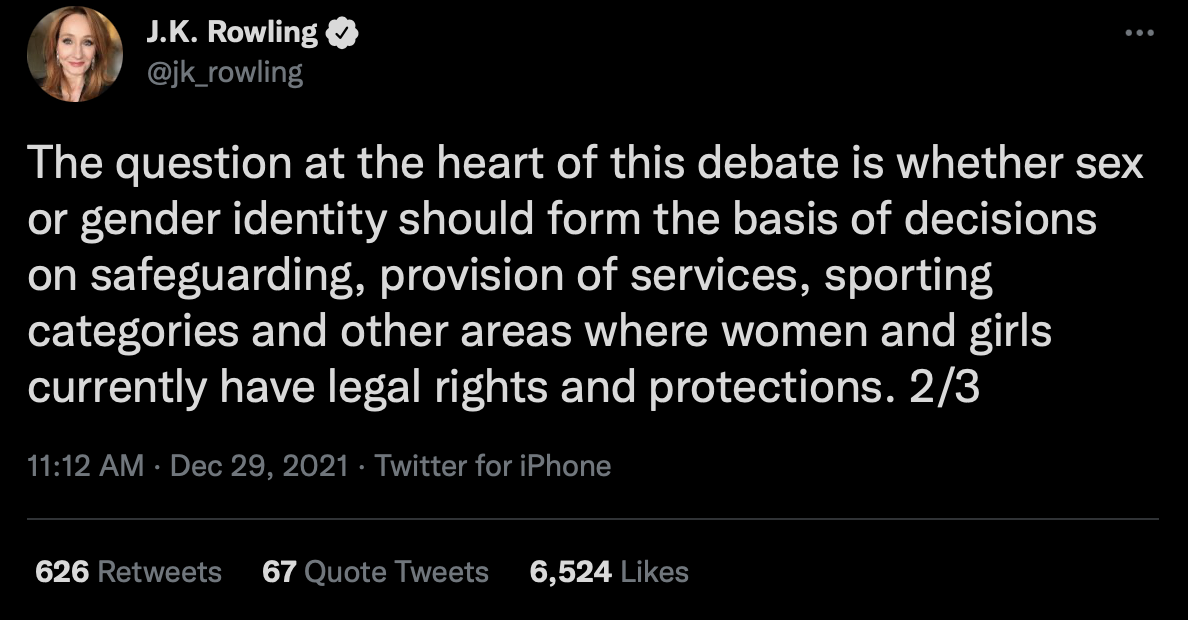
“Using the words ‘sex’ and ‘gender’ interchangeably obscures the central issue of this debate,” Rowling continued, linking to an article the Harry Potter author wrote in June of last year, where she went through her reasons for speaking out on sex and gender issues. “If you’re interested in what I actually said, see [the piece] (in which I literally say ‘trans lives matter’ and ‘trans rights are human rights.’)”
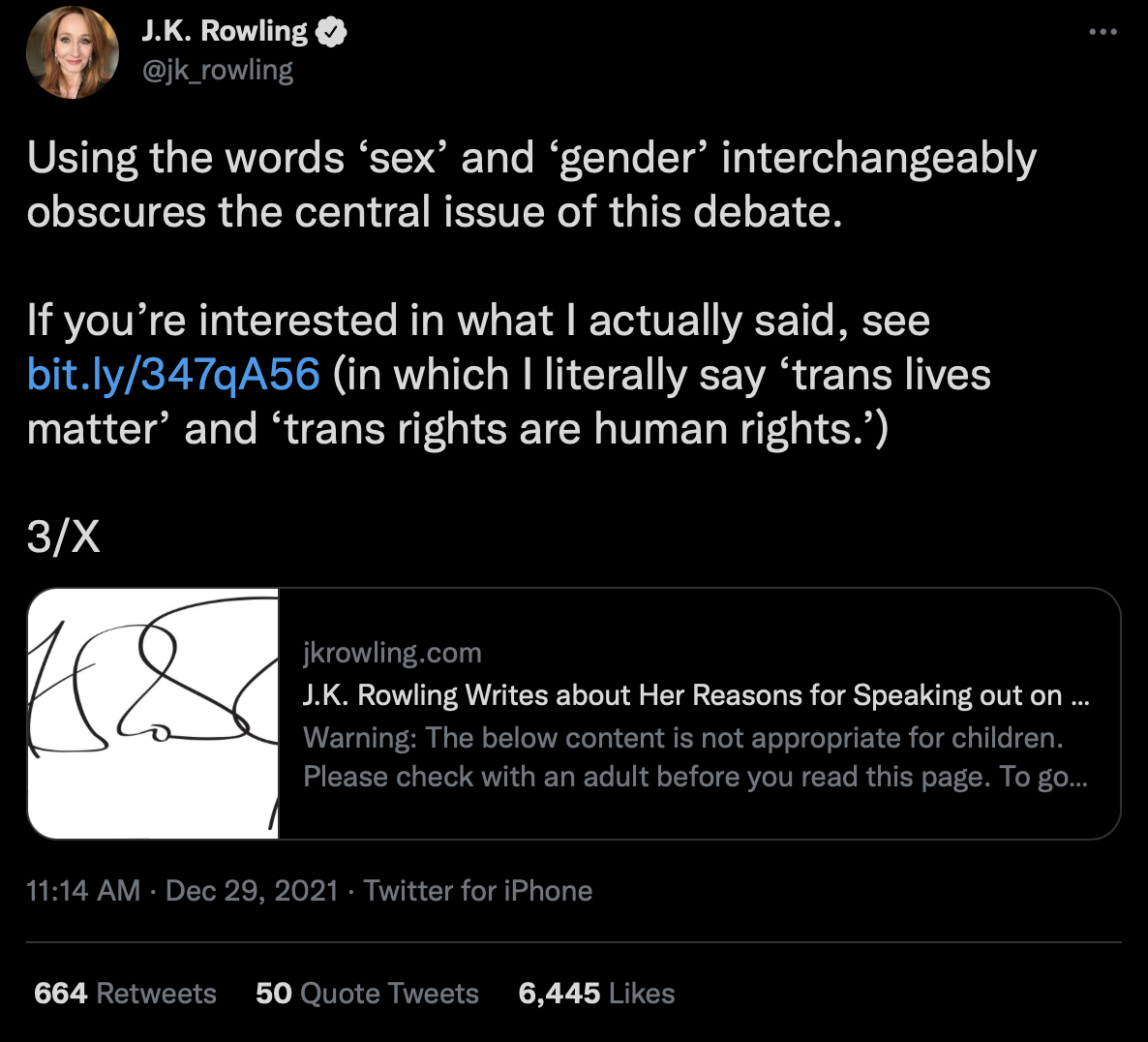
Following Rowling’s callout of their framing of her words, Rasmussen Reports issued a correction to their original report and apologized for their mistake.
“Rasmussen Reports regrets any misunderstanding that may have been caused by the wording of this survey and article, and extends a sincere apology to Ms. Rowling for misstating her opinion,” read their clarification.
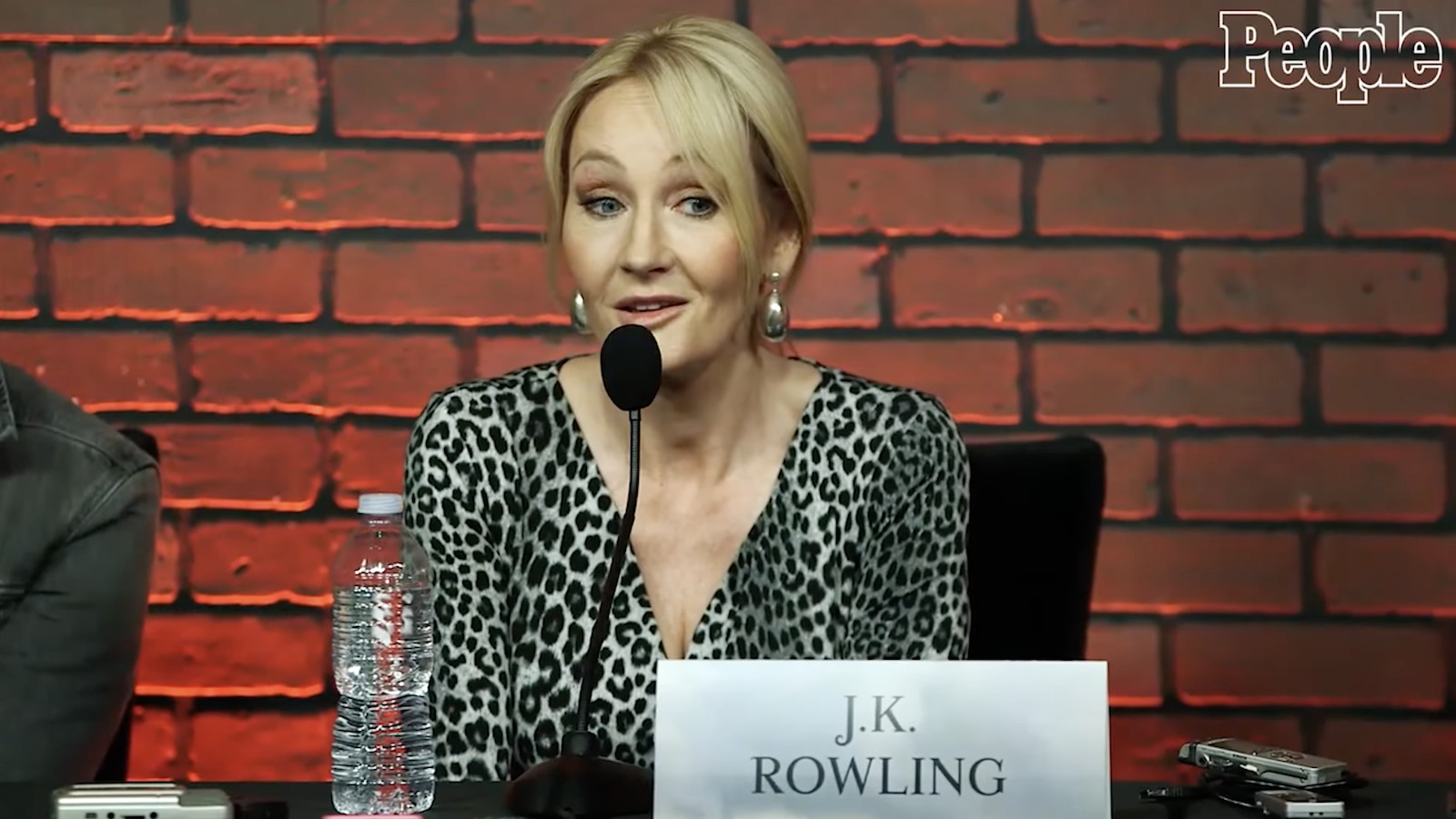
NEXT: J.K. Rowling Mocks Scottish Police For Documenting Male Rapists As Women
More About:Uncategorized
